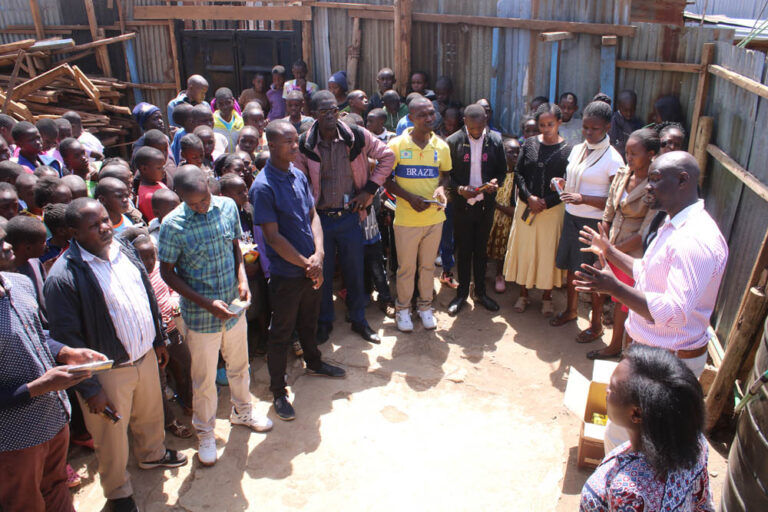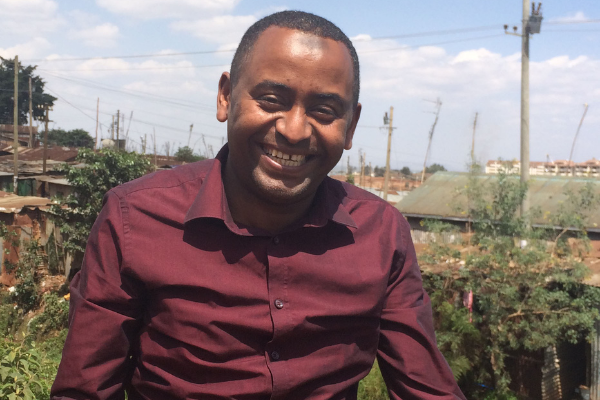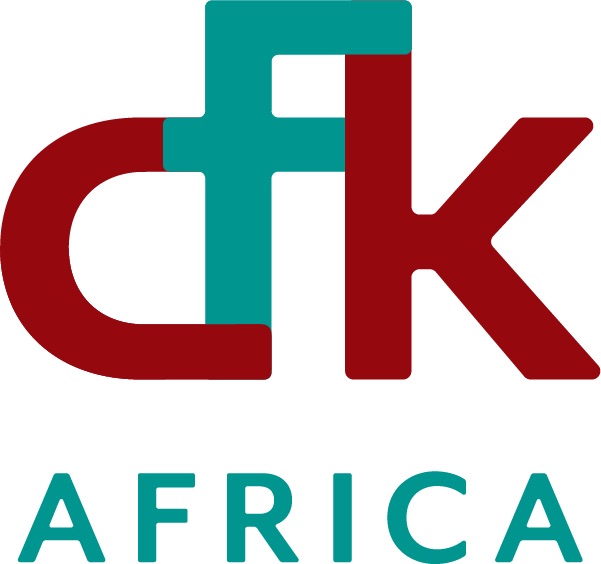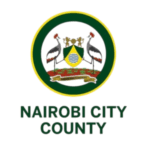Our mission is to empower youth in slums.
CFK Africa is a registered non-governmental organization headquartered in Nairobi, Kenya and a 501(c)3 nonprofit in the U.S.
CFK Africa envisions a future where a generation of healthy, educated, and innovative youth in informal settlements become visionary leaders and change-makers, facilitated by digital connectivity.

It all started with $26, an unlikely connection, and a strong commitment to community service.
Co-founded in 2001 by a Kenyan nurse based in Kibera, a Kenyan community organizer, and a University of North Carolina student who responded to community need for projects to support youth development and provide healthcare, CFK Africa has grown from managing a youth sports program and a 10-foot-by-10-foot clinic to one of the largest and longest-standing NGOs in Kibera delivering high-quality primary health services to thousands of patients and developing hundreds of impressive young leaders through education and youth development programming.

Tabitha was an unemployed nurse and widowed mother when she started CFK Africa’s first medical clinic out of her 10×10-foot home with just $26.

Salim was a founding member of the Mathare Youth Soccer Association (MYSA) before co-founding CFK Africa in 2001.

Rye first traveled to Kibera as a student at the University of North Carolina at Chapel Hill (UNC-Chapel Hill) to study ethnic violence among youth.

Time Magazine and the Bill & Melinda Gates Foundation named CFK Africa a Hero of Global Health in 2005.

CFK Africa was named the CDC’s lead implementing partner for WaSH in Kenya.

CFK Africa was featured as the cover story on an issue of TIME Magazine for Kids, titled A Higher Goal: Soccer is Helping Kenyan Kids Get Set for the Future.

Triangle Business Journal selected CFK Africa as a 2022 TBJ Corporate Philanthropy Award winner for our e orts to improve public health, education, and economic opportunity in informal settlements.

The Oklahoma City National Memorial and Museum honored CFK Africa with its Reflections of Hope Award in 2008.

CFK Africa co-hosts one of the largest overseas population-based infectious disease surveillance programs operated by the CDC, KEMRI, WSU, and AMREF, supporting data collection to inform health policy formulation in Kenya and beyond.

CFK Africa Executive Director, Hillary Omala, served as a Gratitude Network Fellow in 2019.

Isuzu Kenya awarded CFK Africa for 'Contributing to Inclusion in Community Development' on International Women's Day, 2024.

CFK Africa co-founder Rye Barcott named ABC News Person of the Year in 2006.

CFK Africa was the lead partner in the development, inception and piloting of the ‘Girl-Centered Program Design’ & ‘Safe Spaces’ program in Kenya in collaboration with The Population Council.

Harvard Business School profiled CFK Africa as the focus of the school’s first multi-media case study.

CFK facilities are awarded Best Performing in Neonatal Care, Leadership, and Human Resource Management by Nairobi City County for the 2024 Health Service Delivery Awards.
Who We Are
CFK Africa is a registered NGO in Kenya and 501(c)(3) nonprofit in the U.S. that empowers youth in slums.
Quick Links
Stay Connected
Website Design by Carrboro Creative | Photo credit site-wide: CFK Africa